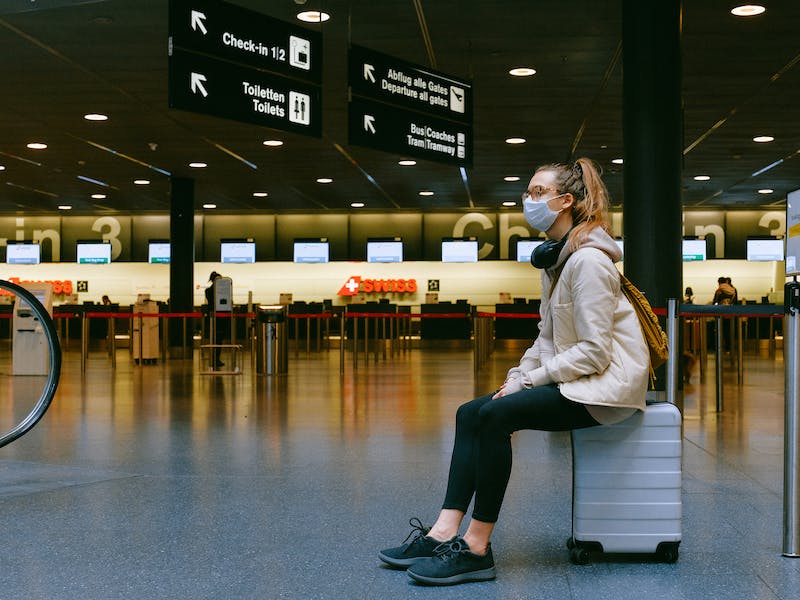How Long After Covid Can You Test Again: Guidelines for Retesting

If you’ve recently recovered from Covid-19, you may be wondering when to test again, especially if you’re planning to return to work or social activities. Retesting is important to ensure that you are no longer contagious and to prevent the further spread of the virus. Factors such as the severity of your symptoms and guidance from health organisations will influence the timing of a retest. It’s generally advised to isolate for a minimum of five days if you were symptomatic, and possibly longer if you had moderate to severe symptoms.
For asymptomatic cases or after recovery, the presence of the virus might reduce, but it’s still possible to test positive for some time due to residual viral RNA. Understanding when to find lateral flow test can be crucial in these instances. Lateral flow tests are commonly used for retesting as they are convenient and provide quick results. They can offer peace of mind or a necessary certificate for travel or work. It’s best to stay informed about the latest recommendations from health authorities regarding post-infection testing time frames.
Key Takeaways
- Retesting timing is based on symptom severity and health guidelines.
- Residual viral RNA can cause positive results post-recovery.
- Lateral flow tests are a practical option for post-infection testing.
Understanding Covid-19 Retesting
When considering a retest for Covid-19, a clear understanding of the recommended timeframe, the types of tests available, and personal health factors is essential for an accurate assessment.
Recommended Retest Period
If you’ve tested positive for Covid-19, official guidelines suggest a period of isolation. During this time, retesting isn’t generally recommended, unless you require it for specific health or occupational reasons. For instance, isolation should last for at least five days if you are asymptomatic, but this extends to at least ten days if symptoms are moderate to severe.
Test Types and Timing
The timing of your retest may depend on the type of Covid-19 test you use. There are two primary types: PCR tests, which are highly sensitive and can detect the virus even at low levels, and rapid antigen tests, which are best used when you have symptoms.
Factors Affecting Retest Timing
Several factors can affect the timing of when you should retest for Covid-19. These include the severity of your symptoms, whether you are immunocompromised, and the likelihood of having been contagious. Understanding your symptom onset and tracking your health status is crucial, as people can continue to test positive long after symptoms have subsided. Always consult with healthcare professionals for tailored advice.
Post-Infection Considerations
After a positive COVID-19 test, your focus should shift to understanding immunity, the potential for reinfection, and the importance of monitoring your health for any prolonged symptoms that could indicate Long Covid.
Immunity and Reinfection
Once you’ve had COVID-19, your body typically develops some level of immunity to the virus. This immunity can reduce the risk of reinfection for a period, but it’s important to note that this protection isn’t absolute. Current evidence suggests that reinfection can indeed occur, especially as new variants emerge. The recommended time to stay isolated post-infection would be at least five days if you had mild to no symptoms, and at least 10 days for moderate to severe symptoms. It’s critical to continue following public health guidance as your immunity develops.
Long Covid and Health Monitoring
Long Covid refers to the continuation or development of symptoms that persist well beyond your initial recovery period. These symptoms can include fatigue, shortness of breath, or cognitive difficulties and can have a significant impact on your daily life. Monitoring your health after infection is essential. If you find yourself experiencing lingering symptoms, consider seeking medical advice. The uncertainty in how long you may test positive after an infection, underscores the importance of vigilance and consultation with healthcare providers to manage your recovery effectively.
Conclusion
Following a positive COVID-19 test, your ability to retest and the timeframe involved is guided by your symptoms and recovery process. The CDC advises isolation for at least five days if you have no symptoms or your symptoms are improving, extending to ten days for those with moderate to severe symptoms. Once symptoms have significantly improved, a retest isn’t typically necessary unless required for medical care or specific institutional policies. Should symptoms persist or worsen, consult a healthcare provider. It’s essential to keep abreast of the latest guidelines as recommendations may evolve with ongoing research and public health considerations.





